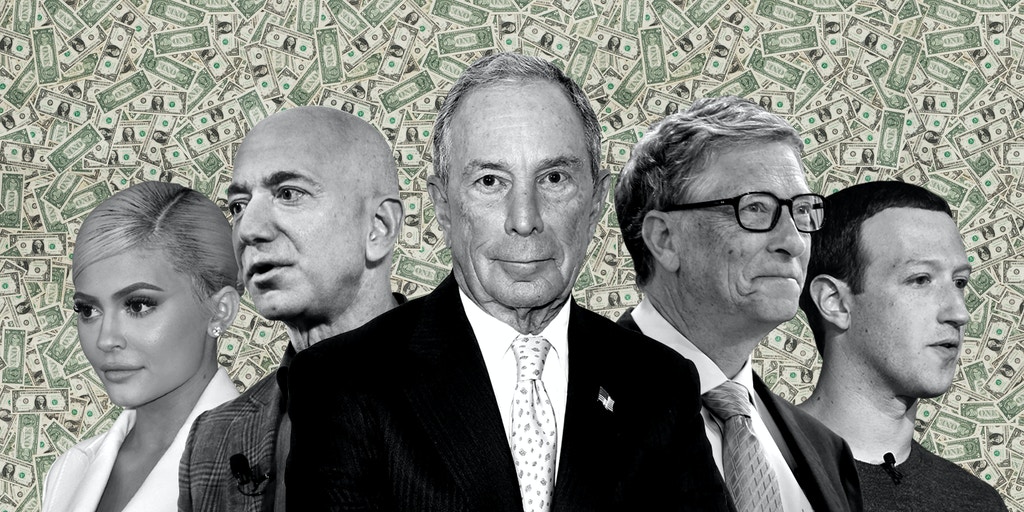
SAVR KUMAR – APRIL 15TH, 2020
EDITOR: AMANDA YAO
The top 0.01 percent of Americans are estimated to hold nearly 20 percent of all wealth in 2018, three times larger than their proportion 40 years earlier. The 3 wealthiest people in the country are thought to own more wealth than the bottom half of America. Given the drastic impact of the current global pandemic and the consequent economic recession, it has been speculated by many that inequalities will widen. People with low incomes will be most detrimentally affected by social distancing, compounded by their lack of access to healthcare. Despite this increasing concentration of wealth in the hands of a select few, however, research by leading economists Emmanuel Saez and Gabriel Zucman has revealed that while the tax rate for the majority of society is 28 percent on average, the effective tax rate for the top earning individuals in the US may possibly be lower, at 23 percent. It is the context of this paradoxical and unjust system that Zucman and Saez have proposed a wealth tax, which, although seemingly radical, may move the world closer to one characterized by more equitably divided resources, as they argue has existed in the past.
So, what is the wealth tax proposed by Saez and Zucman, and how would it work? The proposed wealth tax is an annual tax assessed on a person’s wealth including their housing, stocks, and land, specifically aimed to affect only the very wealthy–to be precise, the top 0.01 percent of the population. The tax would begin to affect people whose wealth is above 50 million dollars but there would be no exemptions, unlike the income tax. Why? Well, if you gave exemptions for some assets, like real estate or paintings, for example, a massive tax avoidance opportunity would arise. For such a wealth tax to be successful, however, considerable enforcement would be required.
The opponents of the wealth tax have put forth numerous arguments against it, one being that the wealth tax has not been effective in Europe, in countries like France and Austria. However, in Saez’s conception of the wealth tax, a variety of precautions have been taken which would make it, in myriad ways, different from the wealth tax applied in European countries. For instance, as mentioned earlier, it would only begin to affect the wealth of people possessing over 50 million dollars. Wealth taxes in Europe, however, have become too costly due to an overly low wealth threshold for taxation; the wealth tax in France, for instance, starts at the equivalent of 1 million US dollars rather than 50. This targets a much broader spectrum of society compared to the wealth tax that Saez has proposed, resulting in greater levels of tax evasion overall.
Tax evasion essentially depends on tax design and enforcement. Saez argues that the wealth tax failed in Europe because it was easy to evade the tax. For example, if you were a rich person in France who wanted to avoid the tax, you could move to London and not be eligible for the wealth tax in merely one year’s time. Further, he argues that Europe didn’t have good enforcement to prevent people from hiding their money in different countries; a French citizen could hold assets in Switzerland, unbeknownst to the French government. The United States took a very strong position in 2010 that all foreign financial institutions holding US assets needed to report their accounts to the IRS lest they be subject to high penalties. Saez argues that there is definitely scope for tough enforcement of the wealth tax. Individuals would not be able to avoid the proposed tax by leaving the country. If people want to avoid it, they will have to relinquish their citizenship, and even then could still be hit by an exit tax to “make you pay for renouncing your citizenship.”
The viability of assessing all the assets held by the wealthy for subsequent taxation has also been questioned. It was for this reason, among others, that Austria walked back its wealth tax, as the tax became too costly to maintain. It is incumbent on the government to systematically assess the numerous aspects of an individual’s wealth.
To this, Saez responded that defining the value of entities is culturally markedly more integral to the US than European countries. In the US, well-known private paintings tend to be insured, property rights are very well defined, and a whole sector of the financial industry is dedicated to evaluating various institutions. Saez also introduced the example of Zillow, a company possessing a database of 110 million properties owned in the United States. He argues that if a private company can do this much, it should be in the government’s scope to do so as well.
Essentially, the US—or any other country in the world—cannot follow Europe’s system as their wealth tax failed. Saez believes that, instead, countries will have to systematize the information on wealth, which will have to be systematized and transferred just like it is for the income tax system.
One may ask the question, how important is this topic really? Given the current economic recession and other broader existential threats such as climate change, is the wealth tax debate the most important discussion to be having? A reason you could resolutely answer yes: it is ultimately in times like these that government spending is crucial, whether it be on relief packages for COVID-19 relief, such as the US’s 2 trillion dollar stimulus package, or efforts to address climate change. Rather than money in the pockets of private individuals who may be unwilling to provide the same degree of assistance, the government would ideally be able to use these funds for the gravest problems and general public spending. Furthermore, by redistributing this money to lower strata of society, middle- and lower-class Americans would have a cushion against economic shocks, money which thinkers like Chomsky have argued only serve as political power to those at the top who possess it.
Still, there is much opposition to the tax based on the fact that such a tax would be unprecedented in US history, and claims that the proposed tax may not actually raise the amount of money that Saez and Zucman claim it will. To the first argument, that a tax of this nature has never been implemented before, Saez responds that this is strictly false. Though largely forgotten now, the US actually created a highly progressive tax system in the early part of the twentieth century. It was the first country to crank up the tax rates on the uppermost strata of society to 67 percent to fund WWII, and these rates even reached up to 90 percent up till the late 1970s. When did it all change? Tax rates fell dramatically during the Reagan administration. When Reagan came in, he said that the government was the problem, as they were the ones taking away from the people. In the early 80s, there was an explosion of tax avoidance and tax shelters. Due to this increase in tax avoidance, Reagan conveyed to the Democrats that taxing the rich was not working anymore, proposing significant cuts in tax rates. The effective top tax rate fell from 70 percent to 28 percent. According to Thomas Piketty, an economist at the Paris School of Economics, as well as Saez and Zucman, now all income groups pay the 28 percent while those at the top pay 23 percent.
This is a serious allegation and important to address how this is possible underneath an ostensibly progressive tax system – especially if the wealth tax is to effectively raise the tax rate for those who are able to flout it. Let’s take Jeff Bezos, for instance. He likely pays corporate taxes and, according to Saez, in the best-case scenario, he pays 16% of federal taxes. He will only pay taxes on a small percentage of his profits, however, as he only needs to pay taxes on the Amazon stocks that he sells because Amazon does not distribute dividends. This means that unless he has truly massive consumption needs, he is probably not going to realize much of his income. This leaves him effectively paying a lower proportion of his income in taxes than everyone in society, aside, of course, from those of a similar echelon in society.
While Saez and Zucman have suggested that this will be the most direct tool to increase the tax rate, opponents have still questioned whether their proposed wealth tax will actually raise as much money as Saez and Zucman have suggested. It follows that there are many other ways to raise revenue, such as taxing capital gains. Saez himself addressed the fact that there is scope for fixing the current corporate tax, which raises little revenue and is easy for multinationals to avoid. Still, such policies are not mutually exclusive to a wealth tax and would not increase progressivity to the same extent, even if they were able to raise the same amount of money, which is open to speculation.
This raises an important question: should progressivity be an aim of its own? People are often at a pain to make a distinction between income inequality and poverty. The argument is that with economic growth, which is not a zero-sum game where some gain and others do not, people will be lifted out of poverty as ultimately all of society benefits. Innovation on the part of entrepreneurs creates new jobs, thereby organically reducing unemployment. Furthermore, there is plenty of innovation among billionaires and top-earning millionaires who, if taxed this heavily, would no longer be examples of inspiration for people to strive towards.
There are a few arguments against this. It is indeed important to make the distinction with poverty, especially in developing countries, but taxing extremely high-earning individuals may provide the much-needed resources for poverty relief and other programs the government does not currently have funds to initiate. Furthermore, Saez and Zucman have speculated that “since 1980, the incomes of the bottom half of the US population have essentially stagnated in real terms. Half of the population has been shut off from economic growth.”
As to whether Saez and Zucman’s wealth tax would really disincentivize innovation, that seems unlikely because this tax would only affect those holding wealth above 50 million dollars, an extremely small portion of society. It is unlikely that people would be disincentivized from launching new startups, for instance, if they saw that billionaires had to pay higher taxes to the government. Furthermore, as Zucman stated in a tweet directed at Bill Gates, who is currently worth an estimated $106 billion: “If the wealth tax had been in effect since 1982, Gates would still have $13.9 billion left over,” while “Buffett would still have $10.4 billion leftover, rather than the approximate $88 billion that he has today.” There would still be plenty of room and opportunity for philanthropy, and they would certainly still have inordinate amounts of wealth. Further, although it is undeniable that private charity exists, like the notable work of the Gates Foundation, it is questionable how representative that is of all billionaires’ philanthropy and whether private charity will ever be enough to replace government functions. Bill Gates himself has stated that he is open to the idea of higher taxes on the ultra-rich, given that it is within reason, although what amount this is exactly is unclear.
Saez argues that under the wealth tax, billionaires will not remain so simply by virtue of being billionaires in the first place, which is the case right now: “With a high tax rate on billionaires, you can still become a billionaire… Mark Zuckerberg would still have been able to create Facebook and become a multi-billionaire, but as Facebook matures, if it doesn’t keep growing, slowly the wealth tax is going to erode his wealth and he wouldn’t stay a multi-billionaire for as long.” As of right now, the top 400 taxpayers in the US are thought to have paid something like 10 billion dollars in taxes relative to their combined wealth of 2.5 trillion dollars. While opponents of the tax say that it would ultimately harm meritocracy in society, it is open to debate how meritocratic the current system is.
Movies and media are increasingly preoccupied with the complex questions and morality of rampant inequality, as depicted by movies such as Parasite and The Joker, both of which were released in 2019. Saez and Zucman personally advised Senator Warren for her wealth tax proposal, an idea which Bernie Sanders had his own version of within his platform. The wealth tax aims to restore the lost progressivity of the supposedly progressive taxes in American society, which will hopefully inspire other governments around the world to follow suit. In some people’s eyes, it represents safety for the middle and lower classes as a buffer against economic shock and, in general, a more just world where billionaires don’t pay lower taxes than the working class. There are many legitimate concerns and challenges which face the proposed American wealth tax, however, including possible inefficacy if it follows in the footsteps of its European counterpart, and difficulty in getting it approved in the first place due to reasons such as potential backlash from billionaires. It cannot be denied, however, that it is a powerful idea resonating with many around the world.
Featured Image Source: The Intercept
Disclaimer: The views published in this journal are those of the individual authors or speakers and do not necessarily reflect the position or policy of Berkeley Economic Review staff, the Undergraduate Economics Association, the UC Berkeley Economics Department and faculty, or the University of California, Berkeley in general.



